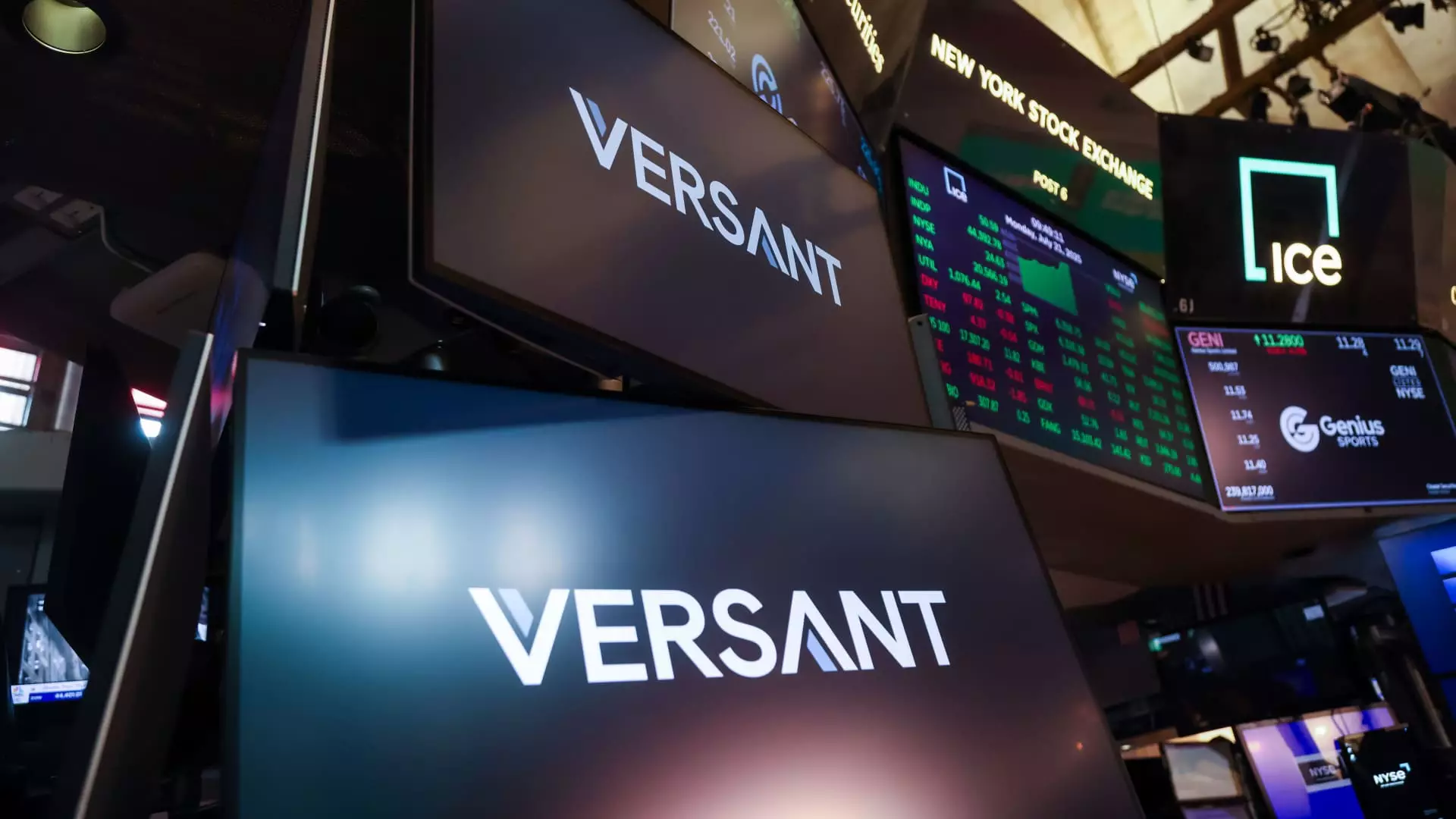The recent announcement of Comcast’s plan to spin off its cable networks into a new entity, Versant, signals a significant shift in how media conglomerates are positioning themselves in an evolving digital landscape. While such maneuvers are often heralded as strategic responses to changing market demands, they also reveal underlying tensions between legacy media giants and the rapid technological disruptions that threaten their traditional revenue models. This move appears to be an attempt by Comcast to isolate its more stable cable assets from the volatile digital and streaming sectors, but the question remains: is this truly a strategic evolution or a calculated retreat?
The composition of Versant’s board offers a telling glimpse into the new corporate philosophy. From media veterans like Mark Lazarus and Rebecca Campbell to finance and law experts such as Michael Conway and Creighton Condon, the diversity underscores an ambition to craft a multifaceted, adaptable media powerhouse. Yet beneath this veneer of sophistication lies a risk: bringing together individuals from disparate industries with different visions for media’s future could lead to internal discord, diluting the very agility the company seeks.
The Power Dynamics and Their Hidden Implications
The appointment of David Novak as chairman signifies a desire to blend media innovation with a seasoned corporate leadership background. Novak’s tenure at Yum Brands and his deep history with Comcast show a preference for leaders skilled in navigating complex corporate environments, but this also raises questions about the extent of independent vision Versant might truly possess. Will this new entity challenge the status quo, or merely serve as an extension of Comcast’s existing strategic framework?
Moreover, executives like Rebecca Campbell bring an international perspective, hinting at a potential push toward global expansion or influence. Yet, with a board rich in corporate experience but seemingly lacking in emerging media entrepreneurship, Versant’s future might be hamstrung by a conservative approach. The risk here isn’t just financial; it’s cultural. Will this entity adapt quickly enough to the digital revolution, or will it become a relic ensnared in traditional media paradigms?
The industry has already witnessed many instances where spin-offs have failed to generate the anticipated independence, succumbing instead to internal conflicts or strategic inertia. The true test for Versant will be whether it can foster innovation without losing sight of market realities. The fact that it’s set to house not just cable networks but also digital platforms raises hopes of a more integrated approach, yet it also opens Pandora’s box of operational complexities.
The Broader Context: Media Capitalism and the Future of Content
Central to this narrative is the ongoing debate about media concentration versus decentralization. Critics argue that entities like Versant could become vehicles for consolidating power under corporate umbrellas, potentially stifling competition and diversity. While the center-wing liberal perspective tends to advocate for healthier, more competitive markets, it is also aware of the dangers posed by monopolistic tendencies cloaked in strategic maneuvering.
The inclusion of various industry leaders in finance, law, and tech signals an effort to navigate this complex terrain. The potential dilution of Comcast’s direct influence might be seen as a positive step towards fostering a more open, innovative media environment. Alternatively, it could further entrench corporate interests by creating new layers of corporate governance that prioritize stability over experimentation.
Fundamentally, the question is whether Versant’s emergence signifies a genuine step towards democratizing media or a sophisticated tactic to shore up influence and protect existing assets from disruptive forces. In an era where digital innovation upends traditional content models at a dizzying pace, the ability to adapt quickly becomes paramount. If Versant can leverage its leadership’s combined expertise for agility and forward-thinking, it might carve out new spaces for independent, creative media enterprises. If not, it risks becoming a corporate monolith, disconnected from the cultural currents that define popular media today.
In weighing its prospects, one must consider whether this strategic realignment prioritizes long-term innovation or merely preserves existing power structures under a new guise. If history is any guide, media spin-offs falter when they become captive to their parent company’s interests; only those committed to true independence can catalyze the change that modern audiences demand. Whether Versant can escape this cycle remains to be seen, but one thing is clear: the media landscape is evolving rapidly, and only adaptable, daring leadership will survive it.


Leave a Reply